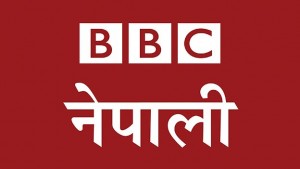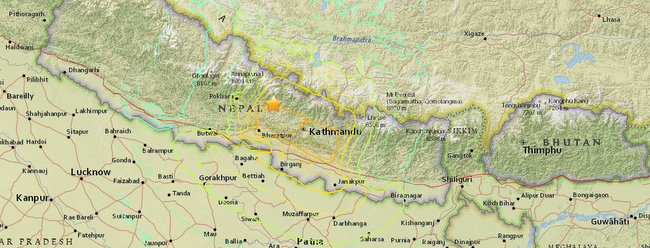 (Source: BBC Media Centre press release)
(Source: BBC Media Centre press release)
BBC World Service broadcasts Lifeline programmes in Nepal
In response to the aftermath of the earthquake in Nepal, the BBC World Service is now broadcasting additional programming on shortwave in both Nepalese and in English.
BBC Media Action – the BBC’s international development charity – is working with the Nepali Service on BBC World Service (radio and online) and local partner radio stations to broadcast ‘Lifeline’ programming.Liliane Landor, Controller of World Service Languages, says: “Information is vital and we are doing all we can to make sure that our audiences in the affected areas receive their local and regional news as well as ‘Lifeline’ programming designed to give practical information to help deal with the aftermath of the earthquake.”
The Nepali language programme is available on shortwave as follows:
Nepali dawn transmission (01:30-01:45 GMT)
11995 kHz (25 metre band)
15510 kHz (19 metre band)Nepali evening transmission (15:00-16:00 GMT)
9650 kHz (31 metre band)
5895 kHz (49 metre band)The availability of World Service English on short wave to Northern India and Nepal has been extended with the service now starting one hour earlier than normal at 23.00 GMT.
Additional frequencies for World Service in English (to S Asia) from 23:00 GMT to 24:00GMT
5895 kHz (49 metre band)
9540 kHz (31 metre band)From 00:00GMT the broadcasts continue as normal on 12,095kHz, 9,410kHz and 5970kHz


Bearing in mind the magnitude of the earthquake, this service from the BBC looks to be woefully inadequate. 45 minutes a day doesn’t really mean “doing all we can”! BBC Media Action claims the signal was also being distributed by 300 radio stations in Nepal (which co-incidentally is the number of stations in wikipedia). If this was the UK, it would be getting rolling news coverage. Frankly, I wonder why they bother with the extra shortwave coverage – how does anyone in the target area know it is on the air?
In general, I think that international broadcasters have shown themselves to be incapable of organizing post-disaster communications. Too late, too little. Do it properly or not at all.
Exactly. Considering that people will be more concerned about what is happening. I doubt anyone will want to tune in for 45 minutes since they are getting better coverage from local media.
When the earthquake hit I was a bit surprised at how slow BBC World Service and BBC World News coverage and provided information. CNN International, and others were doing a much better job. Within hours CNN had people on the ground and were doing special reports from their studios in Hong Kong. BBC on the other hand was doing sports and a report on a restaurant in Kenya.
Even Sky News was providing better coverage.
Mind you I am not really surprised. When I look at how the BBC covered Cyclone Pam that hit Vanuatu it was awful. Radio Australia’s Pacific Beat program had to give almost an hour to stop rumors the BBC had started about people drinking sea water that was 100% false. The Pacific Beat team at Radio Australia and Dateline team at Radio New Zealand International called the BBC reporting irresponsible.
BBC also added a few extra shortwave frequencies to the Pacific for 2 hours a day. Each time I tuned in the BBC was running programs that had no relevance to the audience or to what happened in Vanuatu. Radio Australia on the other hand were relaying all kinds of information.
Also Jonathan I think your right the BBC got their information from Wikipedia. Which is incorrect. Mind you I know this because I have been to Nepal.